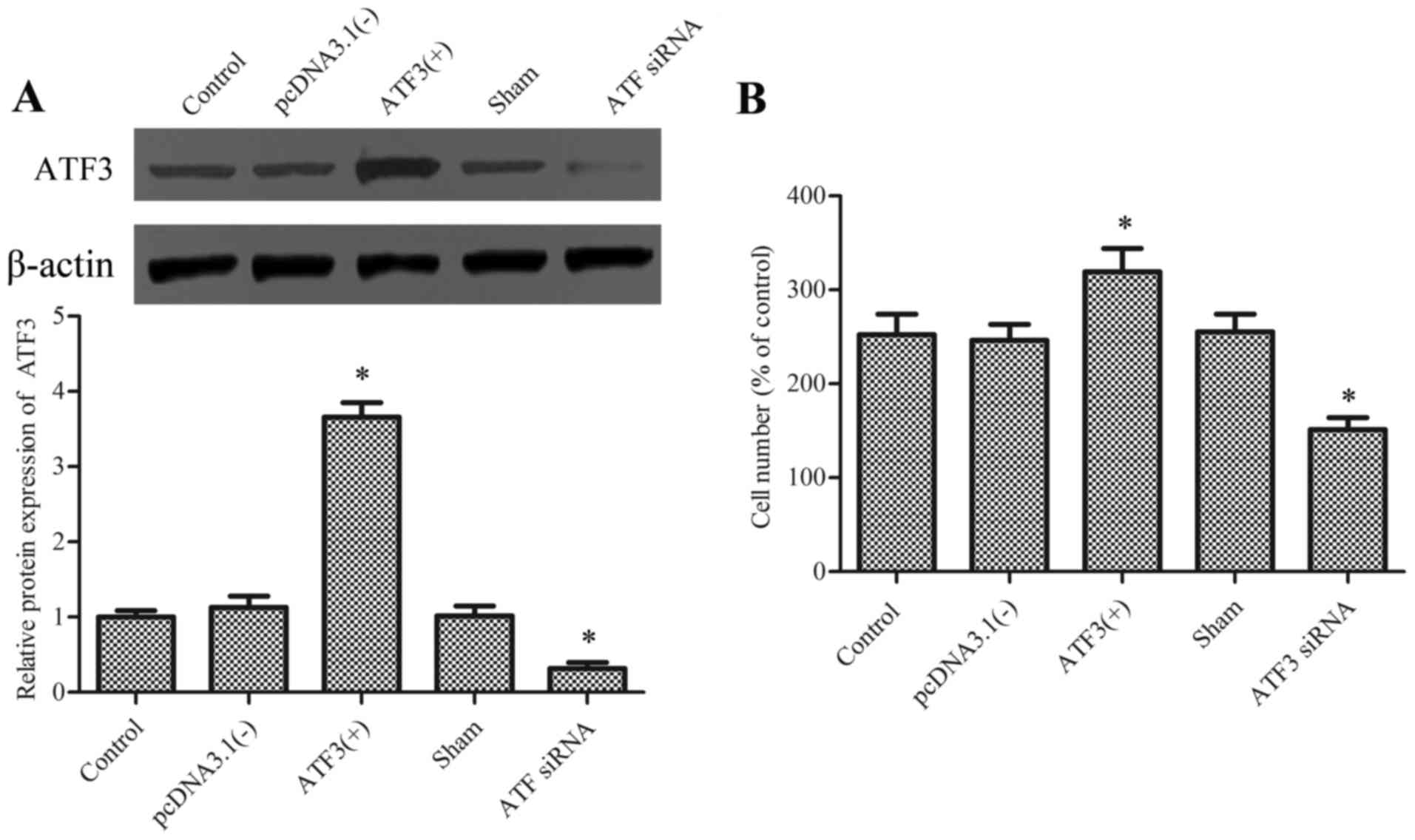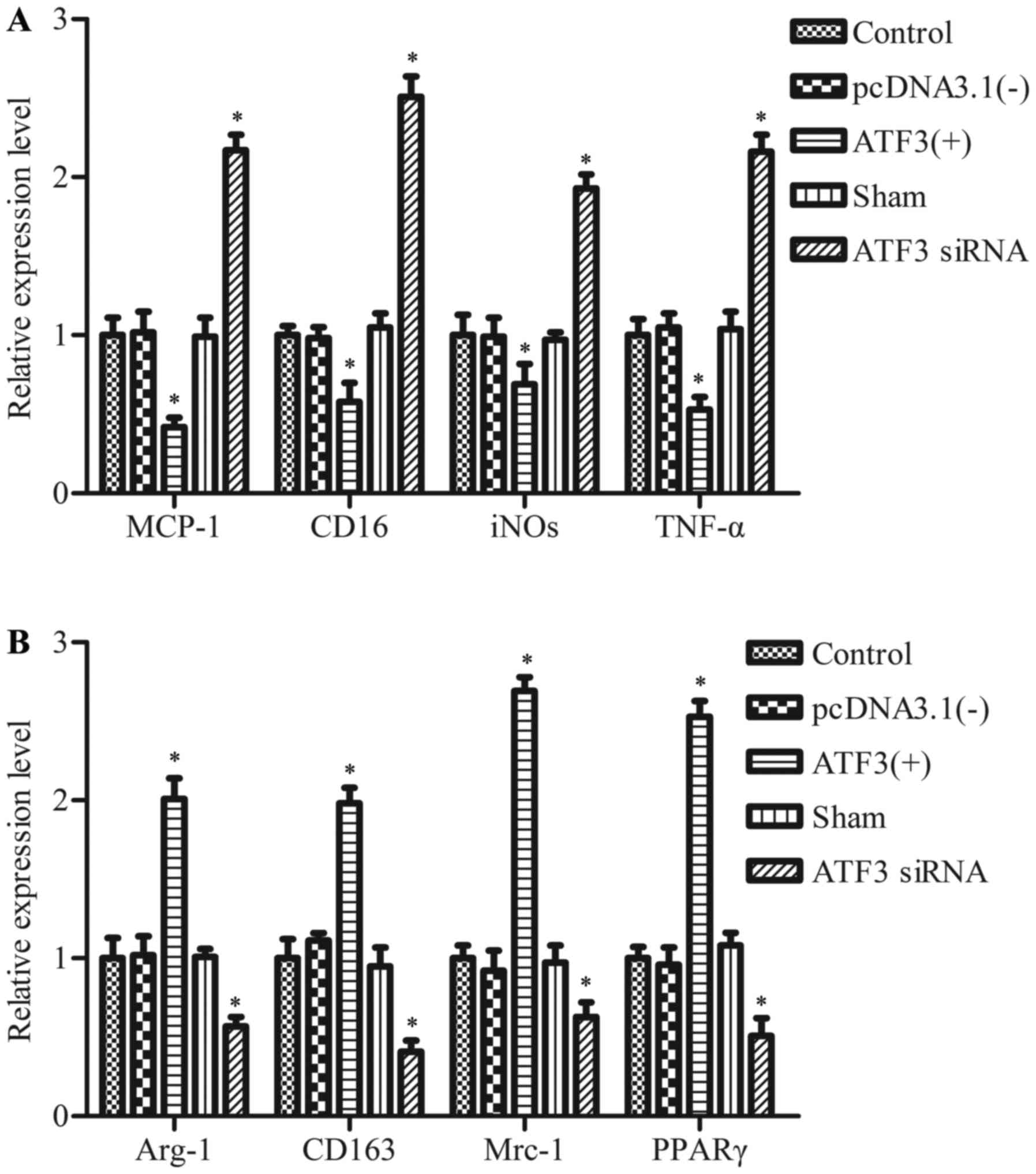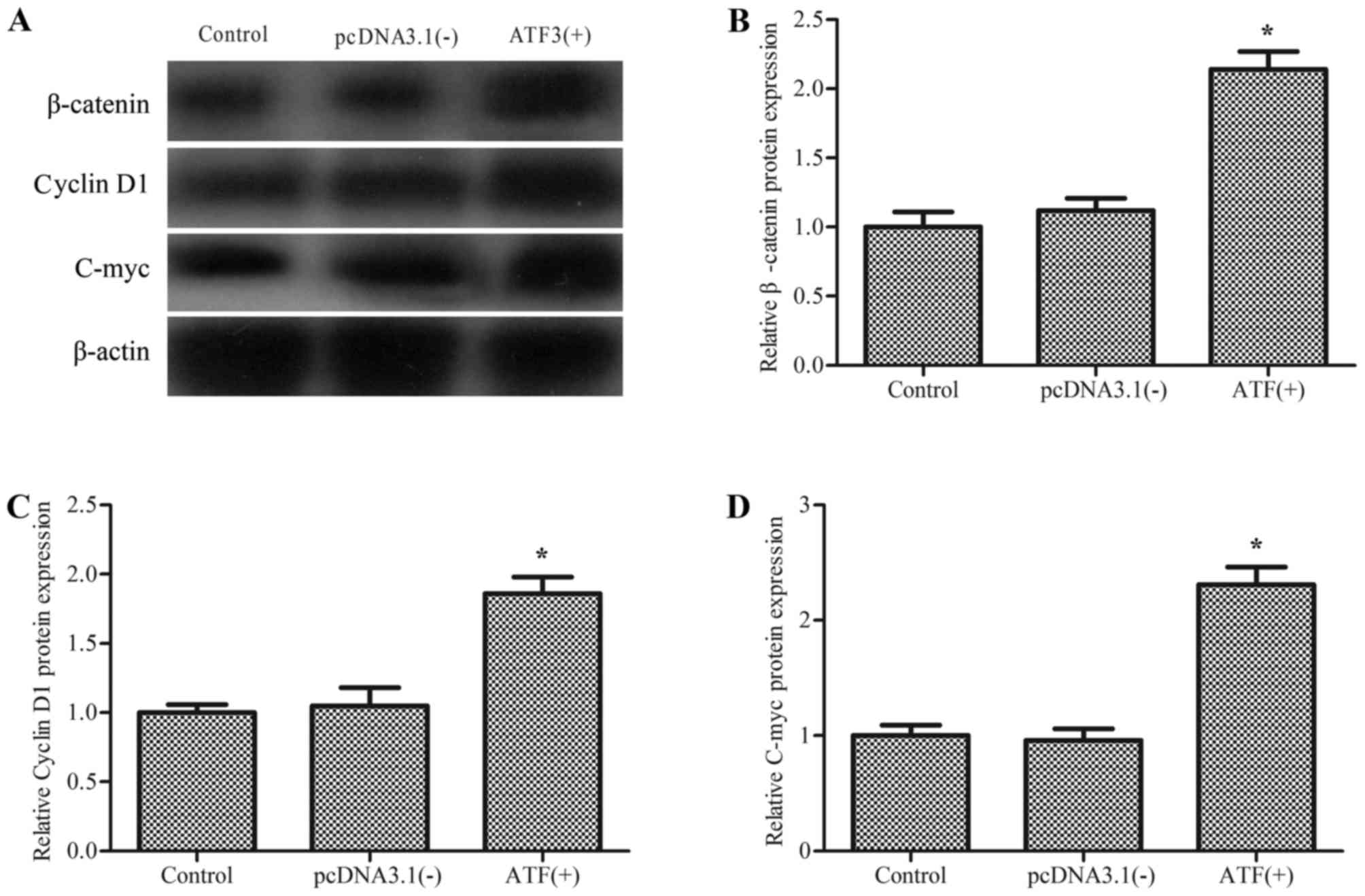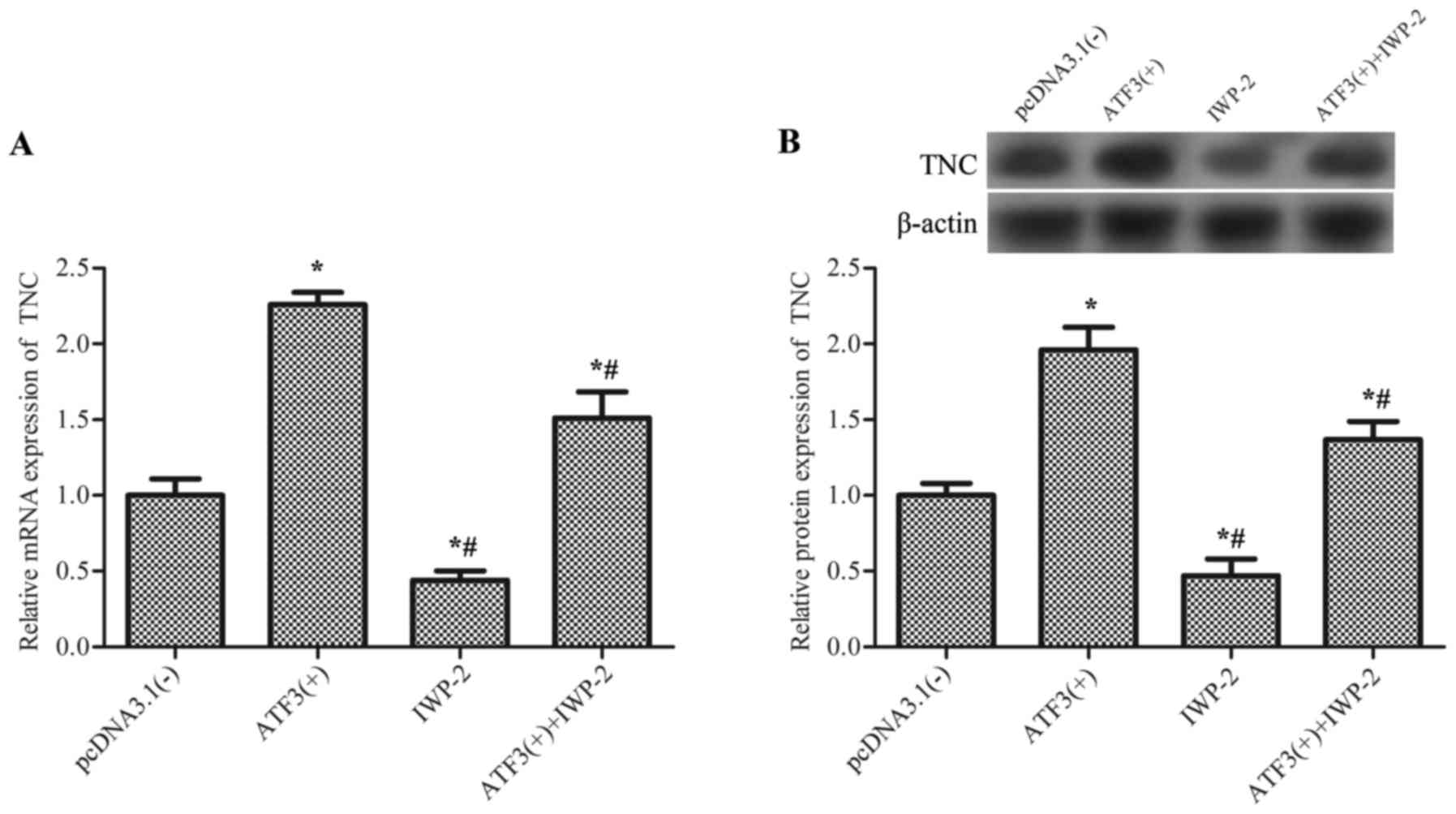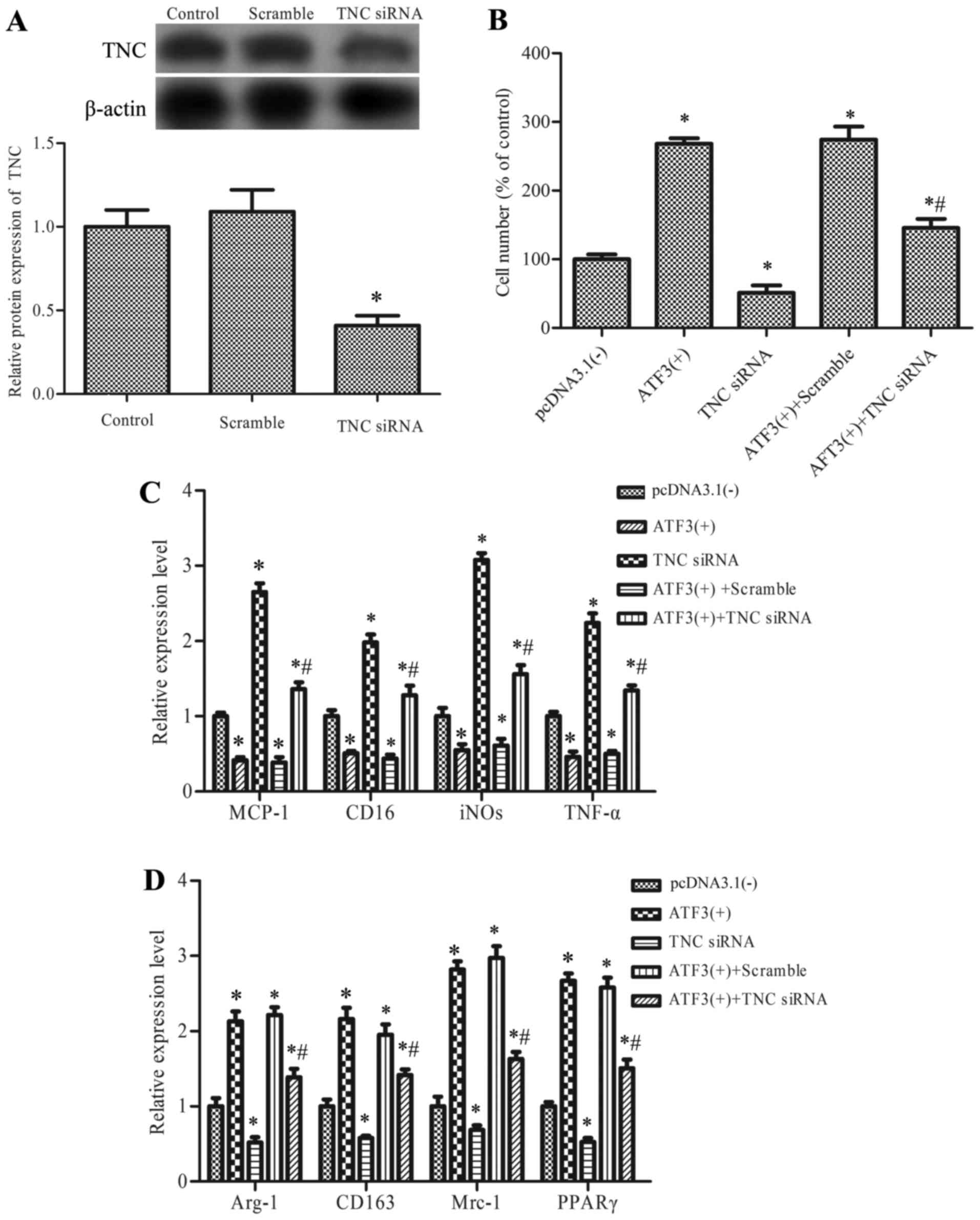|
1
|
Gordon S and Martinez FO: Alternative
activation of macrophages: Mechanism and functions. Immunity.
32:593–604. 2010. View Article : Google Scholar : PubMed/NCBI
|
|
2
|
Martinez FO, Sica A, Mantovani A and
Locati M: Macrophage activation and polarization. Front Biosci.
13:453–461. 2008. View
Article : Google Scholar : PubMed/NCBI
|
|
3
|
Kuroda E, Ho V, Ruschmann J, Antignano F,
Hamilton M, Rauh MJ, Antov A, Flavell RA, Sly LM and Krystal G:
SHIP represses the generation of IL-3-induced M2 macrophages by
inhibiting IL-4 production from basophils. J Immunol.
183:3652–3660. 2009. View Article : Google Scholar : PubMed/NCBI
|
|
4
|
Odegaard JI and Chawla A: Mechanisms of
macrophage activation in obesity-induced insulin resistance. Nat
Clin Pract Endocrinol Metab. 4:619–626. 2008. View Article : Google Scholar : PubMed/NCBI
|
|
5
|
Porcheray F, Viaud S, Rimaniol AC, Léone
C, Samah B, Dereuddre-Bosquet N, Dormont D and Gras G: Macrophage
activation switching: An asset for the resolution of inflammation.
Clin Exp Immunol. 142:481–489. 2005.PubMed/NCBI
|
|
6
|
Gordon S: Alternative activation of
macrophages. Nat Rev Immunol. 3:23–35. 2003. View Article : Google Scholar : PubMed/NCBI
|
|
7
|
Hai T and Hartman MG: The molecular
biology and nomenclature of the activating transcription
factor/cAMP responsive element binding family of transcription
factors: Activating transcription factor proteins and homeostasis.
Gene. 273:1–11. 2001. View Article : Google Scholar : PubMed/NCBI
|
|
8
|
Hai T, Wolfgang CD, Marsee DK, Allen AE
and Sivaprasad U: ATF3 and stress responses. Gene Expr. 7:321–335.
1999.PubMed/NCBI
|
|
9
|
Thompson MR, Xu D and Williams BR: ATF3
transcription factor and its emerging roles in immunity and cancer.
J Mol Med (Berl). 87:1053–1060. 2009. View Article : Google Scholar : PubMed/NCBI
|
|
10
|
Tsujino H, Kondo E, Fukuoka T, Dai Y,
Tokunaga A, Miki K, Yonenobu K, Ochi T and Noguchi K: Activating
transcription factor 3 (ATF3) induction by axotomy in sensory and
motoneurons: A novel neuronal marker of nerve injury. Mol Cell
Neurosci. 15:170–182. 2000. View Article : Google Scholar : PubMed/NCBI
|
|
11
|
Averill S, Michael GJ, Shortland PJ,
Leavesley RC, King VR, Bradbury EJ, McMahon SB and Priestley JV:
NGF and GDNF ameliorate the increase in ATF3 expression which
occurs in dorsal root ganglion cells in response to peripheral
nerve injury. Eur J Neurosci. 19:1437–1445. 2004. View Article : Google Scholar : PubMed/NCBI
|
|
12
|
Nobori K, Ito H, Tamamori-Adachi M, Adachi
S, Ono Y, Kawauchi J, Kitajima S, Marumo F and Isobe M: ATF3
inhibits doxorubicin-induced apoptosis in cardiac myocytes: A novel
cardioprotective role of ATF3. J Mol Cell Cardiol. 34:1387–1397.
2002. View Article : Google Scholar : PubMed/NCBI
|
|
13
|
Yoshida T, Sugiura H, Mitobe M, Tsuchiya
K, Shirota S, Nishimura S, Shiohira S, Ito H, Nobori K, Gullans SR,
et al: ATF3 protects against renal ischemia-reperfusion injury. J
Am Soc Nephrol. 19:217–224. 2008. View Article : Google Scholar : PubMed/NCBI
|
|
14
|
Nguyen CT, Kim EH, Luong TT, Pyo S and
Rhee DK: TLR4 mediates pneumolysin-induced ATF3 expression through
the JNK/p38 pathway in Streptococcus pneumoniae-infected RAW 264.7
cells. Mol Cells. 38:58–64. 2015.PubMed/NCBI
|
|
15
|
Labzin LI, Schmidt SV, Masters SL, Beyer
M, Krebs W, Klee K, Stahl R, Lütjohann D, Schultze JL, Latz E and
De Nardo D: ATF3 is a key regulator of macrophage IFN responses. J
Immunol. 195:4446–4455. 2015. View Article : Google Scholar : PubMed/NCBI
|
|
16
|
Lighvani S, Baik N, Diggs JE, Khaldoyanidi
S, Parmer RJ and Miles LA: Regulation of macrophage migration by a
novel plasminogen receptor Plg-R KT. Blood. 118:5622–5630. 2011.
View Article : Google Scholar : PubMed/NCBI
|
|
17
|
Livak KJ and Schmittgen TD: Analysis of
relative gene expression data using real-time quantitative PCR and
the 2(−Delta Delta C(T)) Method. Methods. 25:402–408. 2001.
View Article : Google Scholar : PubMed/NCBI
|
|
18
|
Kim JS, Yeo S, Shin DG, Bae YS, Lee JJ,
Chin BR, Lee CH and Baek SH: Glycogen synthase kinase 3beta and
beta-catenin pathway is involved in toll-like receptor 4-mediated
NADPH oxidase 1 expression in macrophages. FEBS J. 277:2830–2837.
2010. View Article : Google Scholar : PubMed/NCBI
|
|
19
|
Kraus C, Liehr T, Hülsken J, Behrens J,
Birchmeier W, Grzeschik KH and Ballhausen WG: Localization of the
human beta-catenin gene (CTNNB1) to 3p21: A region implicated in
tumor development. Genomics. 23:272–274. 1994. View Article : Google Scholar : PubMed/NCBI
|
|
20
|
Pedersen EA, Scannell CA, Menon R and
Lawlor ER: Tenascin C is a canonical Wnt target gene in Ewing
sarcoma and its expression is potentiated by R-spondin. Cancer Res.
74:3085. 2014. View Article : Google Scholar
|
|
21
|
Kimura T, Tajiri K, Hlroe M, et al:
Tenascin-C regulates macrophage behavior during tissue repair after
myocardial infarction in mouse model. Molecular Biology Of The
CellAmer Soc Cell Biology. Bethesda, MD: pp. 20814–2755. 2014
|
|
22
|
Shimojo N, Hashizume R, Kanayama K, Hara
M, Suzuki Y, Nishioka T, Hiroe M, Yoshida T and Imanaka-Yoshida K:
Tenascin-C may accelerate cardiac fibrosis by activating
macrophages via the integrin αVβ3/nuclear factor-κB/interleukin-6
axis. Hypertension. 66:757–766. 2015. View Article : Google Scholar : PubMed/NCBI
|
|
23
|
Mantovani A, Biswas SK, Galdiero MR, Sica
A and Locati M: Macrophage plasticity and polarization in tissue
repair and remodelling. J Pathol. 229:176–185. 2013. View Article : Google Scholar : PubMed/NCBI
|
|
24
|
Gilchrist M, Thorsson V, Li B, Rust AG,
Korb M, Roach JC, Kennedy K, Hai T, Bolouri H and Aderem A: Systems
biology approaches identify ATF3 as a negative regulator of
Toll-like receptor 4. Nature. 441:173–178. 2006. View Article : Google Scholar : PubMed/NCBI
|
|
25
|
Hai T, Wolford CC and Chang YS: ATF3, a
hub of the cellular adaptive-response network, in the pathogenesis
of diseases: Is modulation of inflammation a unifying component?
Gene Expr. 15:1–11. 2010. View Article : Google Scholar : PubMed/NCBI
|
|
26
|
Chen HH, Lai PF, Lan YF, Cheng CF, Zhong
WB, Lin YF, Chen TW and Lin H: Exosomal ATF3 RNA attenuates
pro-inflammatory gene MCP-1 transcription in renal
ischemia-reperfusion. J Cell Physiol. 229:1202–1211. 2014.
View Article : Google Scholar : PubMed/NCBI
|
|
27
|
Zmuda EJ, Qi L, Zhu MX, Mirmira RG,
Montminy MR and Hai T: The roles of ATF3, an adaptive-response
gene, in high-fat-diet-induced diabetes and pancreatic beta-cell
dysfunction. Mol Endocrinol. 24:1423–1433. 2010. View Article : Google Scholar : PubMed/NCBI
|
|
28
|
Li HF, Cheng CF, Liao WJ, Lin H and Yang
RB: ATF3-mediated epigenetic regulation protects against acute
kidney injury. J Am Soc Nephrol. 21:1003–1013. 2010. View Article : Google Scholar : PubMed/NCBI
|
|
29
|
Shan Y, Akram A, Amatullah H, Zhou DY,
Gali PL, Maron-Gutierrez T, González-López A, Zhou L, Rocco PR,
Hwang D, et al: ATF3 protects pulmonary resident cells from acute
and ventilator-induced lung injury by preventing Nrf2 degradation.
Antioxid Redox Signal. 22:651–668. 2015. View Article : Google Scholar : PubMed/NCBI
|
|
30
|
Murray PJ and Wynn TA: Protective and
pathogenic functions of macrophage subsets. Nat Rev Immunol.
11:723–737. 2011. View
Article : Google Scholar : PubMed/NCBI
|
|
31
|
Yan L, Della Coletta L, Powell KL, Shen J,
Thames H, Aldaz CM and MacLeod MC: Activation of the canonical
Wnt/β-catenin pathway in ATF3-induced mammary tumors. PLoS One.
6:e165152011. View Article : Google Scholar : PubMed/NCBI
|
|
32
|
Lee H, Bae S, Choi BW and Yoon Y:
WNT/β-catenin pathway is modulated in asthma patients and
LPS-stimulated RAW264.7 macrophage cell line. Immunopharmacol
Immunotoxicol. 34:56–65. 2012. View Article : Google Scholar : PubMed/NCBI
|
|
33
|
Carey WA, Taylor GD, Dean WB and Bristow
JD: Tenascin-C deficiency attenuates TGF-ß-mediated fibrosis
following murine lung injury. Am J Physiol Lung Cell Mol Physiol.
299:L785–L793. 2010. View Article : Google Scholar : PubMed/NCBI
|
|
34
|
Midwood K, Sacre S, Piccinini AM, Inglis
J, Trebaul A, Chan E, Drexler S, Sofat N, Kashiwagi M, Orend G, et
al: Tenascin-C is an endogenous activator of Toll-like receptor 4
that is essential for maintaining inflammation in arthritic joint
disease. Nature Med. 15:774–780. 2009. View
Article : Google Scholar : PubMed/NCBI
|
|
35
|
Shimojo N, Hashizume R, Kanayama K, Suzuki
Y, Hara M, Nishioka T, Yoshida T and Yoshida KI: A functional role
of tenascin-C in angiotensin II-induced cardiac fibrosis.
Circulation. 130:A96322014.
|















